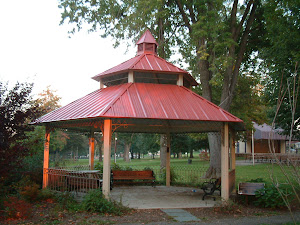Friday, May 1, 2009
By Evan Brandt
For the Reporter/Item
Exelon Nuclear has made it official, announcing that it intends to file a request to extend the license on the Limerick Generating Station for another 20 years.
There’s plenty of time.
Neil Sheehan, spokesman for the Nuclear Regulatory Commission said the first generator at Limerick is licensed until Oct. 26, 2024, and the second generator until June 22, 2029.
And, in fact, the application cannot even be submitted until 2011, when the plant will have been in operation for 20 years.
According to the Exelon Web site, Unit 1 came on-line in February 1986 and Unit in January 1990.
Sheehan said the NRC encourages nuclear plant operators to submit their applications for re-licensing when “at least five years” remains on their current license.
“That allows us to ensure they have submitted the proper information, and that information is of the proper quality,” Sheehan said.
The April 29 letter from Exelon Vice President Michael P. Gallagher informed the NRC that the Limerick renewal application will be submitted in September of 2011.
Renewal applications for three other Exelon plants will be submitted in July 2013, July 2015 and April 2017, Gallagher wrote, although he declined to name the plants which will be applying
Exelon operates 11 nuclear plants across the country, three of which are in Pennsylvania. In addition to Limerick, Exelon operates the Peach Bottom Atomic Power Station outside York and Unit 1 at Three Mile Island, outside Harrisburg.
Currently, the United States has 104 operating nuclear plants and 52 of those have been approved for license extensions, Sheehan said, adding that another 18 currently have license renewal applications under review by the NRC.
The license extension process includes the potential for public hearings, but Sheehan said “there have only been hearing requests in a small number of cases and hearings have been held in only a handful” of license renewal applications.
That’s because, Sheehan said, “you can request a hearing but that doesn’t mean you are automatically granted one.”
He said any person or group who wishes to trigger a public hearing must be granted “standing” and submit specific contentions about allowing the plant to continue operating. Further, those contentions are reviewed by “a three-judge panel” within the NRC called the Atomic Safety and Licensing Board.
That panel decides whether the contentions raised are valid reasons to hold a public hearing, Sheehan explained.
One contention that may be raised has to do with the storage of spent fuel.
When Limerick and the nation’s other nuclear plants were first built, the plan was for the spent fuel to eventually be stored in a national repository beneath Nevada’s Yucca Mountain.
However, scientific and political considerations have thrown that assumption into doubt.
Some now worry that fault lines and water tables may make the Yucca site unsafe. And the fact that the U.S. Senate majority leader is now Democrat Harry Reid, who is from Nevada and opposes the site, have made getting final approval that much more difficult.
Also, the budget proposed by the Obama administration essentially cuts funding for the project, making the fate of the spent fuel those 104 nuclear plants have been generating something of an open question.
The NRC’s position on the subject is that the agency feels spent fuel can be safely stored for 30 years “after a plant shuts down,” Sheehan said. However, since spent fuel has a half life in the hundreds if not thousands of years, this is hardly a long-term solution.
Last October, NRC announced it is considering a change to this policy position, known as its “waste confidence finding,” given the increasing uncertainty of Yucca being opened and used.
The position, first adopted in 1984 and re-affirmed as recently as 1999, state’s the commission’s “confidence that a geologic repository would be available sometime in the first quarter of the 21st century” and that spend nuclear fuel can be safely stored for 30 years “without significant environmental impact.”
This would mean a national repository would be online by 2025, one year after Limerick’s first generator license expires.
The change now being considered adds 25 to 35 years to the estimate of when a national repository would be ready and now concludes that spent fuel could be stored safely on-site at a plant “for at least 60 years beyond the licensed operation of the reactor.”
The agency, which must ultimately approve the Yucca Mountain application, said the new date “is not intended to signal a lack of confidence that a repository will be available” by 2025.
Rather, “the agency believes that deleting this date will remove even an appearance of prejudgment in a licensing proceeding for Yucca Mountain,” according to the Oct. 8 NRC release.
URL: http://www.montgomerynews.com/articles/2009/05/01/springford_reporter_valley_item/news/doc49fb23ff24c7a648942094.prt
Friday, May 1, 2009
Subscribe to:
Post Comments (Atom)


No comments:
Post a Comment